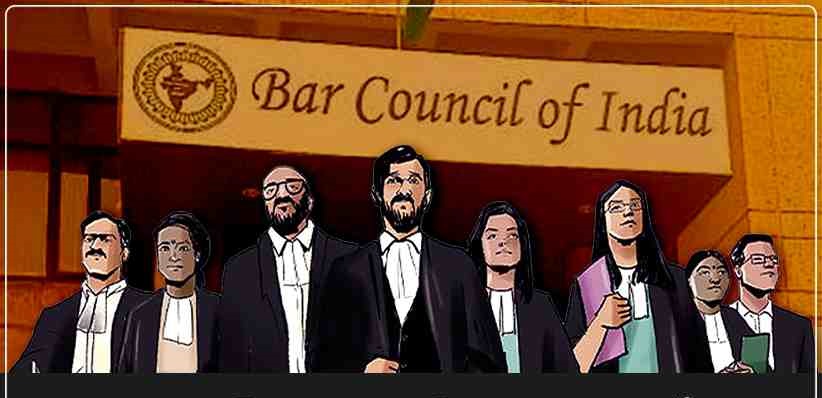The Bar Council of India (BCI), established under the Advocates Act, 1961, is the highest regulatory body for the legal profession and legal education in India. It approves law colleges, sets standards for legal studies, enrolls law graduates through State Bar Councils, conducts the All India Bar Examination (AIBE), and issues the Certificate of Practice (COP). It also governs professional ethics, disciplinary actions, and advocates’ welfare.
1️⃣ What is BCI?
- The Bar Council of India (BCI) is the apex statutory body regulating legal education and the legal profession in India.
- Established under the Advocates Act, 1961.
- Supervises all State Bar Councils.
- Ensures standards of legal education, enrollment, professional conduct, and ethics.
2️⃣ Key Functions of BCI
🎓 Legal Education
- Approves law colleges & universities across India.
- Prescribes curriculum, teaching methods, duration of courses.
- Conducts inspections to maintain quality.
- Approves 3-year LLB and 5-year Integrated LLB programs.
⚖️ Regulation of Advocates
- Frames rules of professional ethics for advocates.
- Enroll law graduates via State Bar Councils.
- Maintains rolls of practicing advocates.
- Disciplinary control: takes action against misconduct.
📝 All India Bar Examination (AIBE)
- Mandatory for law graduates after enrollment with State Bar Council.
- Passing AIBE grants Certificate of Practice (COP).
- Without COP → not eligible to practice in courts of law.
💼 Welfare & Policy
- Runs Advocates’ Welfare Fund.
- Provides aid for medical, accidental, or family emergencies.
- Supports families of deceased advocates.
- Conducts legal aid and awareness programs.
3️⃣ Structure of BCI
- Composed of members elected from all State Bar Councils.
- Headed by a Chairman and Vice-Chairman.
- Works through committees (Legal Education, Disciplinary, Welfare, Legal Aid).
4️⃣ Process for a Law Graduate (Step by Step)
- Complete LLB (3 years/5 years) from a BCI Approved college.
- Apply for enrollment with your State Bar Council (submit documents & fees).
- Attend Enrollment Ceremony → Get your Enrollment Certificate.
- Register & appear for AIBE.
- On clearing, receive Certificate of Practice (COP) from BCI.
- Now you are eligible to practice law anywhere in India.
5️⃣ BCI and Law Colleges
- Law colleges must get BCI approval to grant valid LLB degrees.
- Without BCI recognition → degree is not valid for enrollment.
- BCI periodically publishes approved/de-recognized college lists.
6️⃣ Challenges Faced by BCI
- Mushrooming of fake/unapproved law colleges.
- Delays in enrollment & verification.
- Need for modernization in legal education.
- Handling disciplinary cases effectively.
